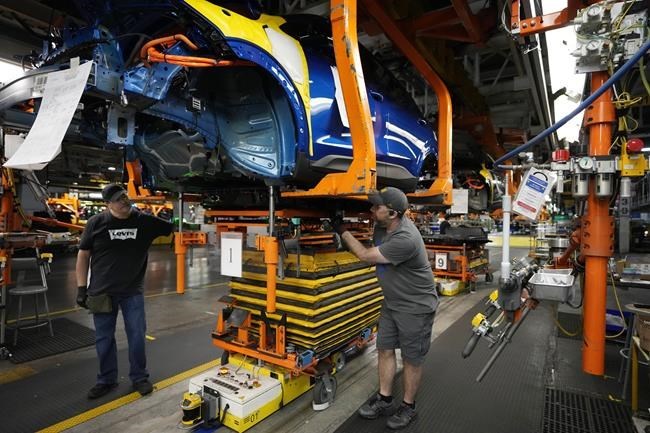WASHINGTON (AP) ŌĆö America's employers posted 8.8 million job openings in November, down slightly from October and the fewest since March 2021. But demand for workers remains strong by historical standards despite higher interest rates.
Wednesday's report from the Labor Department showed that the number of job vacancies dipped from 8.9 million in October. It also showed that the number of people quitting their jobs ŌĆö a sign of confidence in the labor market ŌĆö fell to its lowest level since February 2021. The number of quits is now roughly where it stood before the pandemic erupted nearly four years ago.
In November, job openings dropped by 128,000 in transportation, warehousing and utilities and by 78,000 at hotels and restaurants. The federal government reduced job openings by 58,000. By contrast, openings in construction rose by 43,000 and in retail by 42,000.
Wednesday's report, called , reinforced other recent evidence that while the job market is slowing from its robust heights, it remains solid. Layoffs, for example, .
In the face of rising interest rates, job openings have gradually but steadily declined since peaking at a record 12 million in March 2022. But they remain at historically high levels: Before 2021, monthly job openings had never topped 8 million.
The inflation fighters at the Federal Reserve have raised their benchmark interest rate 11 times since March 2022 to a 22-year high of about 5.4%. They would like to see the job market cool from the red-hot levels of the past couple of years, thereby reducing pressure on businesses to raise pay ŌĆö and prices. Compared with outright layoffs, a decline in job openings is a relatively painless way for that to happen.
So far, ŌĆö avoiding a recession while slowing economic activity enough to conquer high inflation.
The , not far above a half-century low. Through November of last year, American employers added a healthy 232,000 jobs a month. The December jobs report, which the government will issue Friday, is expected to show that the economy added 155,000 jobs ŌĆö still a decent number ŌĆö last month.
And inflation is decelerating: Consumer prices were up 3.1% in November from 12 months earlier, down from 9.1% in mid-2022, though it remains above the Fed's 2% target.
The central bank, which has left its benchmark interest rate unchanged for three straight meetings, has signaled that it expects to cut rates three times in 2024.
ŌĆ£Overall, the labor market remains strong, but demand is cooling, coming into better balance with supply,ŌĆÖŌĆÖ said Rubeela Farooqi, chief U.S. economist at High Frequency Economics. ŌĆ£And wage and inflation pressures are decelerating. These data will be welcome news for policymakers and support the FedŌĆÖs view that the next move in rates will be lower.ŌĆÖŌĆÖ
Paul Wiseman, The Associated Press



